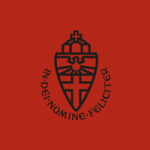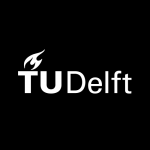项目介绍
Are you passionate about preserving peatlands and cooling the planet? Join the PaluWise project and drive the transition to sustainable paludiculture across Europe. As a postdoctoral researcher, you will develop and promote innovative value chain solutions for productive use of rewetted peatlands, engaging with stakeholders to directly impact European peat landscapes and support climate-smart ecosystems.
As a postdoctoral researcher, you will contribute to several funded projects, such as PaluWise, Fibsun, and Wet Horizons. In PaluWise, you will engage with multiple actors along the value chain and land authorities to collect data that will inform water management assessments, land rehabilitation schemes, and paludiculture product life cycle assessments. Organising in-field workshops in cooperation with stakeholder groups and Paludi4All will be pivotal for data collection through interviews and the dissemination of research knowledge, such as the PaluWise best practice guide to Paludiculture and the Wet Horizons Servi-Peat tool.
In the PaluWise project, you will co-lead two tasks related to field data collection and summarising practical knowledge. You will coordinate the comprehensive collation of biomass data from rewetted peatlands, including database storage, and participate in several field surveys and biomass/soil collection campaigns to support the four PaluWise demonstration sites. Depending on your prior knowledge, you will engage in data analysis activities, including eddy covariance carbon balances, nutrient budgets, biodiversity indicators, regional water management analysis, or life cycle assessments.
As part of the integration of Paluwise, Fibsun and Wet Horizons, you will contribute to project deliverable reports and communicate the outcomes to stakeholders. Depending on your research preferences, you are welcome to engage in upscaling activities that would include landscape-scale carbon credit schemes, rewetting networks, and spatial implications of product carbon footprints on a regional to national scale. Similarly, you can contribute to the development of innovative solutions for paludiculture value chains, improving logistics, carbon insetting, and cost-effectiveness.
Your academic development will be complemented by publishing research findings in relevant scientific journals and actively engaging in teaching activities.
Profile
- You have a PhD in environmental science, landscape ecology, water management, agricultural sciences, forestry, landscape economics, ecology, biogeochemistry, or a related discipline.
- You have a passion for sustainability, peatlands and paludiculture.
- You possess excellent communications skills in English (Dutch, German, Polish and Finnish are beneficial), with a talent for connecting people and transformative science-society communication.
- You have a strong interest in stakeholder engagement, with proven experience or affinity.
- You have experience with, or are interested in biobased materials and value chains in wet peatlands or equivalent land-use.
- You are enthusiastic about interdisciplinary research and hands-on fieldwork. A background in paludiculture, agriculture, or hydrology is considered an asset.
- You have experience or affinity with quantifying ecosystem services, eddy-covariance carbon budget data and environmental data analysis (preferably in R or Python), or farm scale economics or components of a life-cycle assessment (LCA).
- You are able to perform well in interdisciplinary research teams across Europe.
- You are passionate about supervising students and interested in collaborating closely with PhD candidates.
- You have the ability to publish in scientific journals and an enthusiasm for writing.
We offer
- We will give you a temporary employment contract for 1 year with the prospect of an extension for 26 months. In case full time employment is preferred the total contract duration will be reduced accordingly.
- Your salary within salary scale 10 depends on your previous education and number of years of (relevant) work experience. The amounts in the scale are based on a 38-hour working week.
- You will receive an 8% holiday allowance and an 8,3% end-of-year bonus.
- We offer Dual Career Coaching. The Dual Career Coaching assists your partner via support, tools, and resources to improve their chances of independently finding employment in the Netherlands.
- You will receive extra days off. With full-time employment, you can choose between 30 or 41 days of annual leave instead of the statutory 20.
Additional employment conditions
Work and science require good employment practices. Radboud University’s primary and secondary employment conditions reflect this. You can make arrangements for the best possible work-life balance with flexible working hours, various leave arrangements and working from home. You are also able to compose part of your employment conditions yourself. For example, exchange income for extra leave days and receive a reimbursement for your sports membership. In addition, you receive a 34% discount on the sports and cultural activities at Radboud University as an employee. And, of course, we offer a good pension plan. We also give you plenty of room and responsibility to develop your talents and realise your ambitions. Therefore, we provide various training and development schemes.
We are
The Department of Ecology is an inspiring, collaborative and interdisciplinary research hub. We are a young, ambitious and internationally connected research group. We aim for both timely and innovative fundamental research and applied science that lie at the heart of society. Working at the Radboud Institute for Biological and Environmental Sciences (RIBES) will provide you with opportunities to deepen interdisciplinary aspects of your research, investigating key ecological drivers and processes that explain the functioning of wetlands and the ecosystem services they provide. Your research will be embedded in ongoing research lines in paludiculture, biobased value chains, wetland biogeochemistry, and greenhouse gas emission monitoring, and you will collaborate with PaluWise and Paludi4All partners, the Wet Horizons and FIBSUN consortia, and colleagues from RIBES Environmental Sciences. The main project collaborators for your research are Dr Christian Fritz and Prof. Birka Wicke.
Faculty of Science
The Faculty of Science (FNWI), part of Radboud University, engages in groundbreaking research and excellent education. In doing so, we push the boundaries of scientific knowledge and pass that knowledge on to the next generation.
We seek solutions to major societal challenges, such as cybercrime and climate change and work on major scientific challenges, such as those in the quantum world. At the same time, we prepare our students for careers both within and outside the scientific field.
Currently, more than 1,300 colleagues contribute to research and education, some as researchers and lecturers, others as technical and administrative support officers. The faculty has a strong international character with staff from more than 70 countries. Together, we work in an informal, accessible and welcoming environment, with attention and space for personal and professional development for all.
Radboud University
At Radboud University, we aim to make an impact through our work. We achieve this by conducting groundbreaking research, providing high-quality education, offering excellent support, and fostering collaborations within and outside the university. In doing so, we contribute indispensably to a healthy, free world with equal opportunities for all. To accomplish this, we need even more colleagues who, based on their expertise, are willing to search for answers. We advocate for an inclusive community and welcome employees with diverse backgrounds, cultures, and perspectives. Will you also contribute to making the world a little better? You have a part to play.
If you want to learn more about working at Radboud University, follow our Instagram account and read stories from our colleagues.
相关项目推荐
KD博士实时收录全球顶尖院校的博士项目,总有一个项目等着你!




